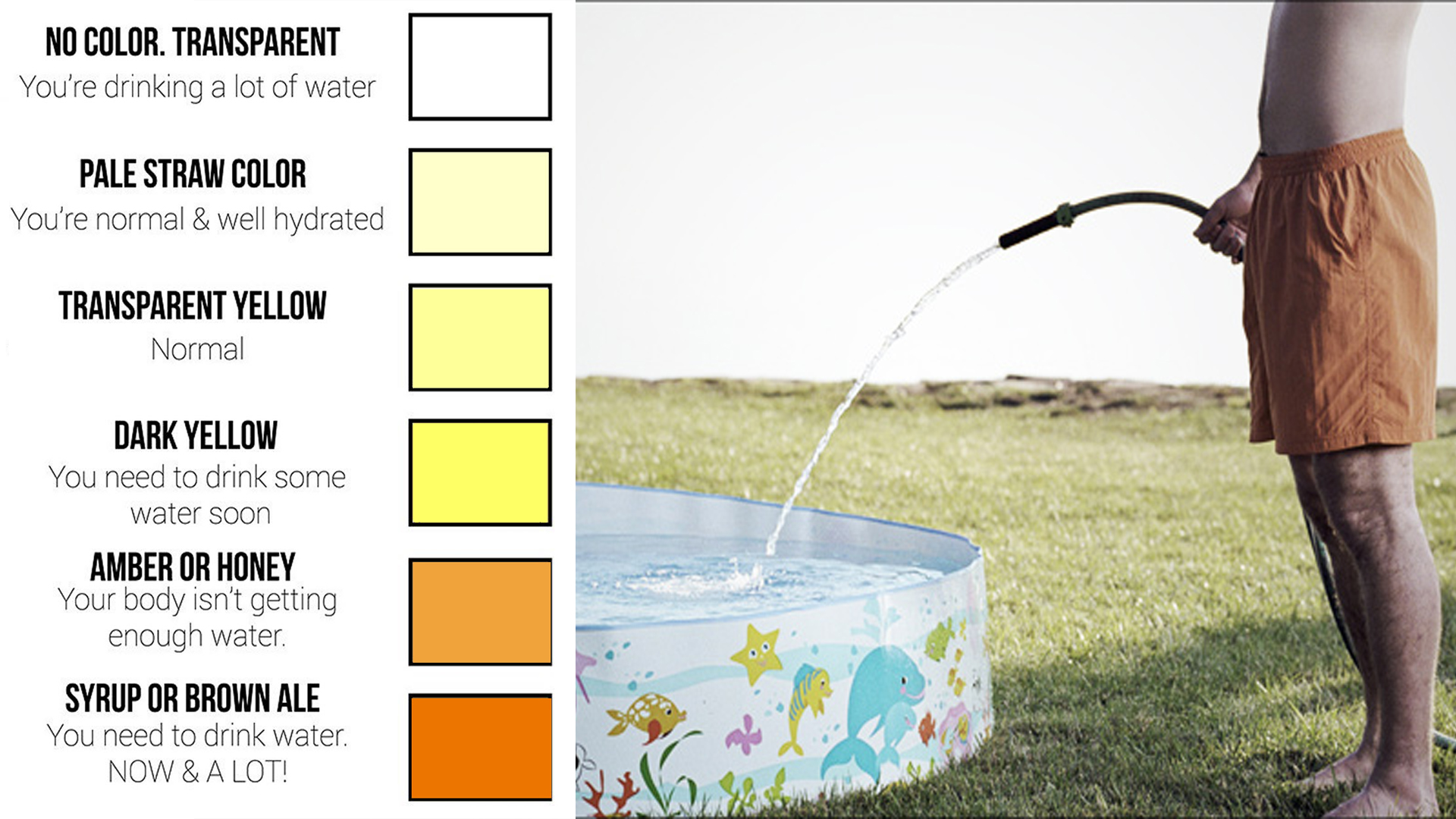The chances are, you don’t really pay much attention to your urine when you go to the bathroom. But in fact, it can provide some detailed information about what’s happening inside your body.
Some signs like the specific hue, the odor, or its consistency, may serve as clues to everything from infections and dehydration to certain types of cancer. And it can also show what you’ve been eating and how much you’ve been drinking.

The urine and urine analysis have helped physicians to examine people’s health for hundreds of years. According to urologists, “if your urine has changed its color or there’s a strange odor, this may result from something as harmless as what you had for lunch, or it can lead to something more serious, like an infection or cancer”.
Acting as a filtered excretion of a person’s blood, substances like excess protein and sugar and even bacteria and yeast, eventually end up in the urine.
What the color indicates:
- Pale or transparent – If it looks like water, it’s probably because you drink a lot of water. It is generally a good thing to keep your body well hydrated, but too much water could distort your electrolyte balance. The most suitable color of the urine that reflects good health is the pale yellow.
- Brown, dark or honey colored – this usually means that you’re dehydrated and that the urine produced by your kidneys is more concentrated. Other signs of dehydration that may appear: dry mouth, dry skin, headaches, lack of focus and fatigue. You shouldn’t be worried by this, simply drink more water and you’ll be fine. But, if your urine remains dark, it could be the result of blood in the urine which could indicate an infection, kidney disease, and sometimes cancer. In that case, visit your doctor.
- Red color – This type of urine is common after consuming beets or another ruby-colored food. Sooner or later, the compounds which give that dark red color of the beets will find their way into the urine. Your pee color should return to its usual the very next day, but if it stays red it may be a sign of a kidney of bladder tumor. Blood in the urine could be a sign of urinary tract infection, not so uncommon in females, but it may also indicate to bladder cancer or kidney stones. Check with your doctor if the blood is present more than a day or two.
- Orange color – may be the result of eating a lot of carrots, due to the high dose of beta-carotene. Other things that may cause it to appear orange are medications, like Pyridium and warfarin. However, if the orange color is fluorescent or neon, it could indicate an issue with your liver.
- Green color – The asparagus possesses the same color compounds as the beets and the carrots which can end up in your urine and make it green. But, if you haven’t been eating it, the green color may be due to urinary tract infection (a Proteus infection), and should not be ignored. Consult with your doctor.
- Blue color – This is not caused by any type of healthy food. The usual reason is either drugs or artificial colors in food, but if it’s neither of them, it may be a result of a genetic condition called hypercalcemia, which means there’s an excessive amount of calcium in your bones.
- Black color – Call your doctor immediately! It could lead to a genetic disorder known as alkaptonuria, or poisoning.
What’s that smell?
It is normal for the urine to have some strange smell that we are used to. But, if the scent is particularly unpleasant, it may lead to an infection of urinary stones, which can create an ammonia-like odor. On the other hand, the sweet smell of the urine would indicate blood sugar in the urine, which is a sign of diabetes.
How many times per day?
An average person goes to the bathroom 6-8 times per day, this may vary more or less, depending on your fluid intake.
If you don’t drink more than usual, but constantly feel the urge to pee, it could be because of a urinary tract infection, involuntary contracts of the bladder muscle, or an inflammation of the bladder wall.
It may also be the result of a Parkinson’s disease or diabetes. Prostate enlargement is another cause and it is quite common for men above the age of 50.
It is very important to keep your body well hydrated (but not too much) and to urinate regularly. So, relax and take your time the next time when you go to take a pee. But, if notice some significant changes in your urine, don’t take it for granted and call your doctor.
